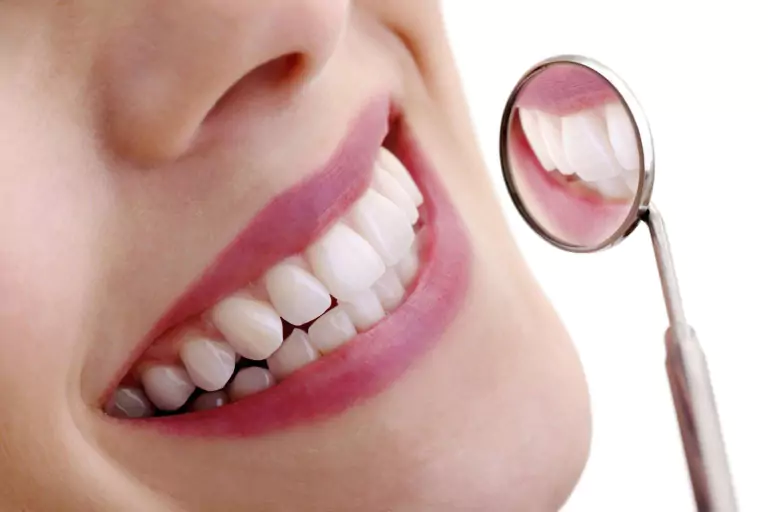
- Home
- About
- Our Team
- Services
- Postoperative Care
- Smile Gallery
- Medical Tourism
- Blog
- Offers
- Contact Us
- Home
- About
- Our Team
- Services
- Postoperative Care
- Smile Gallery
- Medical Tourism
- Blog
- Offers
- Contact Us

A fantastic smile is a reflection of our overall health and well-being, not just looks. Our teeth play an essential part in many facets of our daily life beyond their obvious function of chewing and smiling. They play an important role in digestion, nutrient absorption, and communication capacity.
In this blog, we will delve into the close connection between dental health and overall health, exploring why caring for our teeth extends beyond merely keeping them sparkling white. Join us on a journey to discover the vital role our teeth play in keeping us healthy and growing.
The relationship between teeth and general health is a complex and intertwined web that reaches far beyond the borders of our mouths. Oral health is increasingly being acknowledged as a vital component of overall wellness.
Poor dental hygiene can lead to systemic health problems because germs from the mouth can enter the bloodstream and contribute to disorders, including cardiovascular disease, diabetes, and respiratory troubles. Furthermore, the condition of our teeth influences our capacity to eat healthy foods, altering the efficiency of nutrient absorption and, as a result, influencing our general health.
Our teeth are more than just tools for biting and chewing; as the entryway to our digestive system, a vital element of our face anatomy, and a crucial actor in speech and communication, they are fundamental contributors to the holistic balance of our bodies.
The essential function of teeth for overall body health cannot be overstated since these small but powerful structures play an important part in various physiological processes. Here’s a look at why teeth are important for overall body health:
Nutrient Absorption: Properly digested food promotes efficient nutrient absorption in the digestive tract. Teeth disintegration exposes a larger surface area to digestive enzymes, allowing for better nutritional extraction and absorption into the bloodstream.
Chewing and Mechanical Digestion: The teeth are the digestive process’s first line of defense. Chewing, aided by the teeth, breaks food down into smaller, more manageable pieces. This first stage of mechanical digestion is required for the succeeding stages of digestion in the stomach and intestines.
Oral-Systemic Link: The health of our teeth has been related to various systemic disorders. Poor oral health, characterized by gum disease and infections, has been linked to an increased risk of cardiovascular disease, diabetes, and respiratory difficulties. Bacteria from the mouth can enter the circulation, potentially contributing to inflammation and other health problems.
Inflammation and Chronic Diseases: Chronic inflammation, frequently caused by oral health problems, can have systemic consequences. It has been linked to the development of chronic diseases such as heart disease, diabetes, and arthritis. Maintaining adequate dental hygiene reduces the risk of systemic inflammation.
Speech & Communication: The arrangement of teeth influences speech. Properly positioned teeth allow for precise articulation and pronunciation, resulting in more effective communication. Speech difficulties might occur when there are problems with tooth alignment or missing teeth.
Structural Support: Teeth provide structural support to the facial structure. They maintain the jawbone’s integrity and the proper alignment of the facial muscles. This structural support is essential for facial attractiveness and overall facial harmony.
Toothache Prevention: Healthy teeth provide an effective defense against the unbearable pain of toothaches. Oral hygiene practices, including thorough brushing, flossing, and regular dental check-ups, are critical in preventing cavities and deterioration. Individuals who follow these methods build a strong defense against the intense, throbbing pain commonly associated with toothaches, providing a pain-free dental visit.
Gum Health: Optimal tooth health is essential for maintaining gum health, effectively lowering the probability of gum disease and the associated discomfort. Gingivitis and periodontitis, characterized by swollen, painful gums and increased tooth sensitivity, can be avoided with diligent oral care. This emphasizes the critical role of healthy teeth as strong protectors, actively contributing to long-term oral comfort and well-being.
Self-confidence: Healthy teeth play a significant role in building confidence and self-esteem. A beautiful smile, made possible by well-cared-for teeth, leads to a positive self-image. When people are confident in their dental health, they are more inclined to engage in social contact, which improves their overall psychological well-being.
Social Interaction: Our ability to communicate is influenced by the alignment and quality of our teeth. Well-aligned teeth provide clear speaking and a confident grin, which improves social relationships. Dental problems can cause self-consciousness, obstruct communication, and potentially harm relationships. Prioritizing oral health becomes more than just a physical need; it also plays an essential role in promoting favorable social dynamics.
Nutritious Diet and Health: Individuals with healthy teeth can enjoy a varied and nutritious diet. The capacity to efficiently chew and break down food aids digestion and nutritional absorption. These, in turn, add to general well-being by supplying the energy and nutrients required for a healthy and active lifestyle.
Ease of Daily Functions: Well-maintained teeth ease daily functions such as eating and speaking. Individuals with pain-free and fully functional teeth can enjoy meals and converse successfully. This ease of use in daily activities adds significantly to a happy and fulfilling quality of life, stressing the importance of teeth in overall bodily health.
The complicated relationship between our teeth and general health is noticeable. Aside from their fundamental function in digesting, healthy teeth aid in food absorption, avoid systemic health problems, and improve our communication capacity. The effect extends to psychological well-being and overall quality of life, underscoring the critical necessity of good dental health habits. Our teeth, far more than just tools for chewing, emerge as silent but necessary protectors of our overall health.